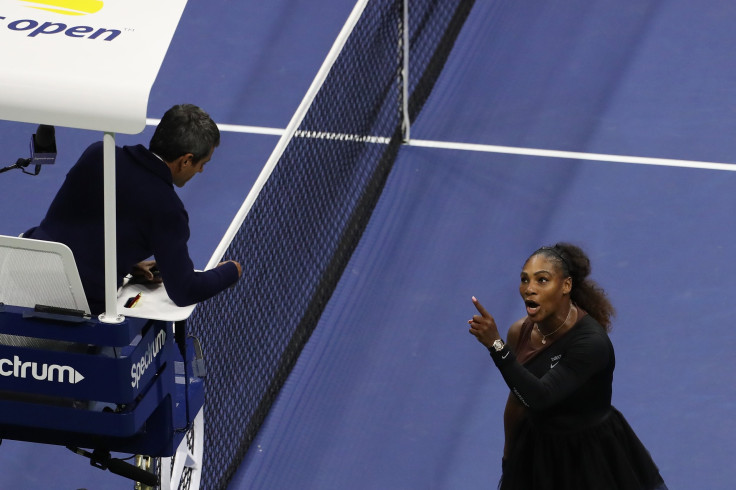US Open: Billie Jean King Continues To Blame Ramos For Serena Incident
Tennis legend Billie Jean King has once again approached the highly controversial 2018 US Open women’s singles final between Serena Williams and Naomi Osaka, which ended with the Japanese player creating history but still ending up with tears – and it was not because of the joy she was feeling.
Osaka dominated the 23-time women’s Grand Slam champion during her straight set victory at Arthur Ashe Arena last year but what was the Japanese star’s greatest achievement in her relatively short career was overshadowed by the clash between Williams and chair umpire Carlos Ramos. The match ended with the American accusing the chair umpire of being a liar, a thief and even sexist after he gave her three on-court violations while the partisan Flushing Meadows crowd booed during the entire prize ceremony.
There were many who came out in support of Williams while there were many that condemned her actions. King came out in support of her compatriot at the time of the incident and has again suggested that Ramos was at fault for giving her an on-court violation for coaching without a “soft warning”.
She believes Williams was not looking at her coach during the game, but the American’s coach Patrick Mouratoglou admitted later that he was giving her instructions between points at the time. King revealed that her brain was “frying” as the incident took place.
“My brain was just frying. It was just burning with thoughts and trying to understand,” King said during a recent interview with the Denver Post, as quoted on Tennis World USA. “If it could go wrong, it did. It was like Murphy’s Law that night. I knew that Serena didn’t know she got a warning. Usually in tennis, you get a soft warning where they say the coach is coaching you, and the next time it happens, you’re going to get a warning.”

“That’s what he usually does, but he didn’t. He gave her a warning right away. And she didn’t even notice the guy. She and Venus do not look at their coaches. They don’t care. They’re in their own world out there."
“I have a one-up because I’ve known them since they were 9 and 10. You have to communicate with the fans. Nobody is telling the fans what’s going on. They’re booing, and they don’t know what they’re booing,” she added.
King, however, had supportive words for Osaka, who she believes is the present and future of women’s tennis. But she continued to point toward Ramos as the aggressor of the clash, and believes he should have quelled the fight despite a barrage of insults being hurled at him by Williams.
“You don’t want to take anything away from Osaka, who is our future — now and the future. She is fantastic. You can tell she hasn’t found her voice yet. She’s young. I hope she does find her voice. She’s got great heart, and she is really steely,” King said. “She knows how to win and stay in the now and believes in herself. She’s great.”
“It was a combination of low emotional IQ from the umpire, she thinking the first time was a cautionary warning and all he had to say was, ‘I’m not attacking your honesty,’ and to keep playing tennis.”
A rematch between the two, however, is not on the cards in 2019 after Osaka lost to Switzerland’s Belinda Bencic in the round of 16, but Williams is still in the hunt for her 24th major title, which will see her equal the legendary Margaret Court.
© Copyright IBTimes 2024. All rights reserved.











